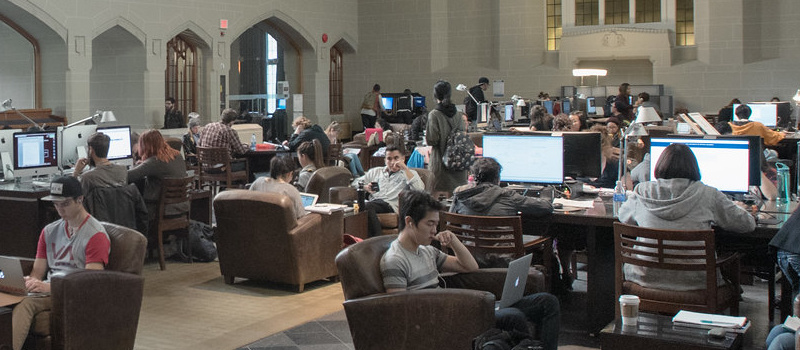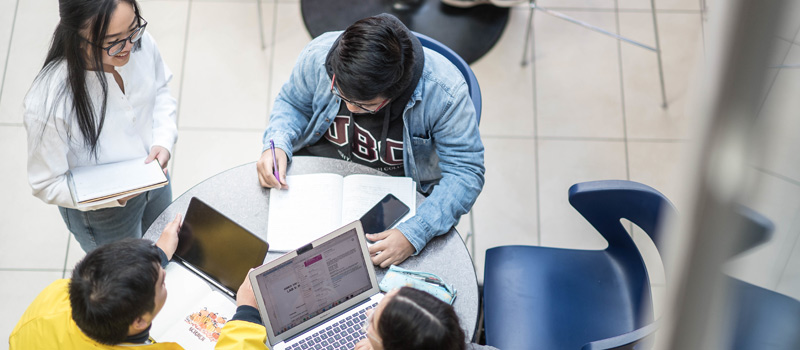Graduate Students
Navigating research, classes, and teaching.
As a graduate student, you are generally expected to have more awareness of academic integrity. You are more advanced in your studies and have had more academic training. Academic integrity is important both for your own work and classes, but also if you are working as a teaching assistant to help train undergraduate students. You are still expected to review and understand UBC’s academic integrity guidelines and expectations.
Much of what you will do as a graduate student will revolve around your own research and classes. In the case of research you are expected to follow the standards of scholarly integrity.
However, the principles of academic integrity still apply to any work that applies to your degree requirements, such as:
- Your classes
- Theses and dissertation materials
- Fellowship applications
- Research proposals
- Comprehensive exams
Consequences for academic misconduct can impact your academic career. Academic misconduct may also undermine your relationship with your graduate supervisor, which can jeopardize your future graduate work. UBC has resources available to support graduate students such as the Centre for Writing and Scholarly Communication, Research Commons, GSS Peer Support, and AMS Advocacy. There are also many events and programs designed to support graduate student success and wellbeing, such as the Dissertation Success program.
And don’t forget to talk with your graduate supervisor and instructors if you are ever in doubt about academic and scholarly integrity guidelines. While graduate students are expected to have a higher level of understanding about integrity concepts, your supervisor and instructors are still available to guide and mentor you in these matters.
Academic integrity versus scholarly integrity
The following is reproduced from the UBC Responsible Conduct of Research website.
Academic misconduct applies to instances of a student or people engaging in, attempting to engage in or assisting others to engage in actions such as cheating, plagiarism, falsifying records or other conduct that occurs during graded assignments established by instructors for specific courses at the university. Allegations of academic misconduct may be sent to the President’s Advisory Committees on Student Discipline. These committees are responsible for determining whether misconduct has occurred. The committees’ findings are reported to the president, who is responsible for decisions about discipline or other consequences.
Scholarly misconduct, by comparison, involves some of the same behaviours (e.g. plagiarism, fabricating research data), and could involve others ( e.g. misuse of grant funds, undeclared conflicts of interest or inappropriate authorship). The distinction between academic and scholarly misconduct is generally made based on whether the work in question is intended for publication. For example, an instance of a student’s paper containing plagiarized material but which was not intended for publication might be considered by the President’s Advisory Committee on Student Discipline. However, if that same paper was published or going to be published, then it would trigger an investigation under the Scholarly Integrity Policy.
Graduate students as instructors
Many graduate students serve as teaching assistants while at UBC. This means that they take courses and teach courses at different times during graduate school. Grad students are expected to follow both the values of academic integrity and scholarly integrity, and as instructors-in-training they are also expected to promote and uphold academic integrity in any class they teach.
The student start page provides relevant resources for all students, including graduate students. Below are some additional resources that graduate students at UBC should check out if they are serving as TAs.

Teaching and learning
As some grad students transition from students to instructors, they see academic integrity from both sides. Our teaching and learning information can help with both.

Role of the instructor
As their experience with teaching increases, so does their role as an instructor. Check out how the academic misconduct process works from the instructor’s point of view.

Dealing with misconduct
The Faculty of Graduate and Postdoctoral Studies has compiled a set of guidelines for handling grad students suspected of academic misconduct.

